Making the Transit System Greener in a Smart Way
October 3, 2019
October 3, 2019
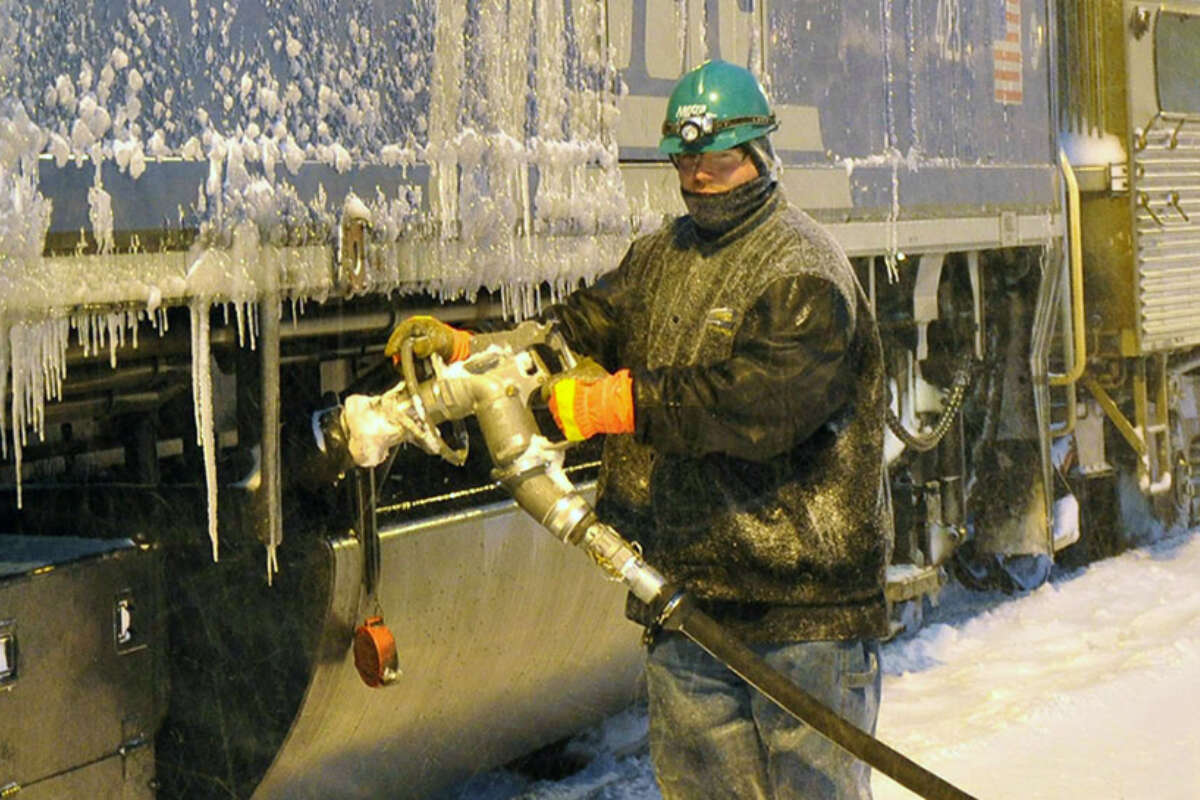
Back in 2012, the RTA and its partners—the Service Boards (CTA, Metra, Pace), IDOT, CMAP and CDOT—developed a plan that described the environmental benefits of transit in the region, providing a roadmap to make the system “greener.” Among its recommendations, the Chicago Regional Green Transit Plan included strategies to grow transit ridership and market share, to promote transit-oriented communities, to improve operational efficiency, and to generally “green” the transit system. The agencies moved ahead with a few recommendations like small energy improvements, but it was difficult to make significant improvements to the resiliency of the transit system without significant new capital funding.
Fast forward to January 2018, when the RTA Board adopted Invest in Transit, the strategic plan that sets a bold vision and goals for our region’s transit agencies over the next five years. In addition to highlight the importance of transit, the plan identified the vital importance of new, sustainable capital funding. Invest in Transit has shaped the activities of the region’s Transit Agencies and has served as the basis for a campaign seeking additional capital funding. Thanks to the subsequent passage of Rebuild Illinois, the largest capital program in our state’s history, the transit agencies can start making investments that advance the priorities of Invest in Transit, the green transit plan, and other foundational studies.
One such investment will be in commuter rail locomotives. Invest in Transit identified a $2.1 billion need for purchasing and modernizing Metra rail cars and locomotives, and one recommendation of the green transit plan was to examine the use of alternative fuels. So last year, Metra and the RTA worked together to investigate the feasibility of converting part or all of Metra's locomotive fleet from one that runs on diesel fuel to a cleaner, alternative fuel source such as natural gas. The objective was to understand the environmental and potential cost savings, in addition to the safety and regulatory requirements, of new fleet purchases.
In mid-2019, a consulting team led by LTK Engineering Services completed a report that includes current best practices, feasibility and conversion details, and recommendations. It identifies a dual-fuel approach combining diesel and compressed natural gas (CNG) as the most beneficial alternative fuel solution that could reduce fuel and conversion costs without compromising train performance.
However, the report ultimately concluded that switching to an alternative fuel source would not be cost effective at this time. Why? Because no company currently manufactures CNG dual fuel locomotives; the cost to convert existing locomotives is very high; and gaining a return on that investment could take up to 15 years. Also, newer diesel locomotives are more fuel-efficient and emit fewer emissions than the older generations in Metra’s fleet. Although switching from diesel to CNG may not be the best use of resources today, the project has served an important function by arming Metra with the best available information as they plan investments in rail vehicles enabled by the new Rebuild Illinois funding.
Metra is very appreciative of the chance to collaborate with the RTA on the Locomotive Alternative Fuel Study. The information contained in the report will allow Metra to make more informed decisions on future rolling stock acquisitions which will ultimately benefit riders in our region.
Sean R. Cronin, Senior Director, Metra Mechanical Capital Projects
Subscribe to our Newsletter
Related Articles
 New project management oversight report highlights more than 100 projects representing $8.2 billion in capital investments
New project management oversight report highlights more than 100 projects representing $8.2 billion in capital investments
The RTA’s Project Management Oversight (PMO) program ensures that the Service Boards—CTA, Metra, and Pace—are spending capital funds and managing their infra...
June 27, 2024 Transportation Tuesday recap: Improving and expanding the transit system strategically
Transportation Tuesday recap: Improving and expanding the transit system strategically
With last year’s adoption of Transit is the Answer came 15 new evaluation metrics that comprise a strategy for evaluating and selecting capital projects. Now...
May 30, 2024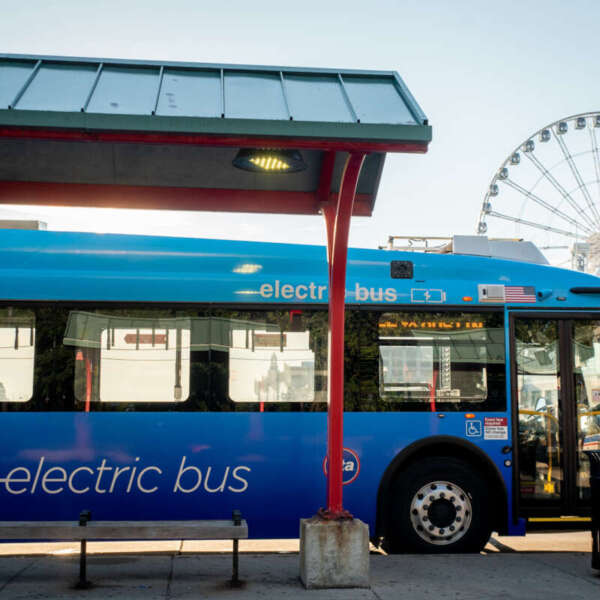 Transit is the answer to meeting Illinois’ climate goals
Transit is the answer to meeting Illinois’ climate goals
As we celebrate Earth Day 2024, the RTA is announcing Transforming Transit —the agency’s commitment to lead the Chicago region’s transit system into the futu...
April 18, 2024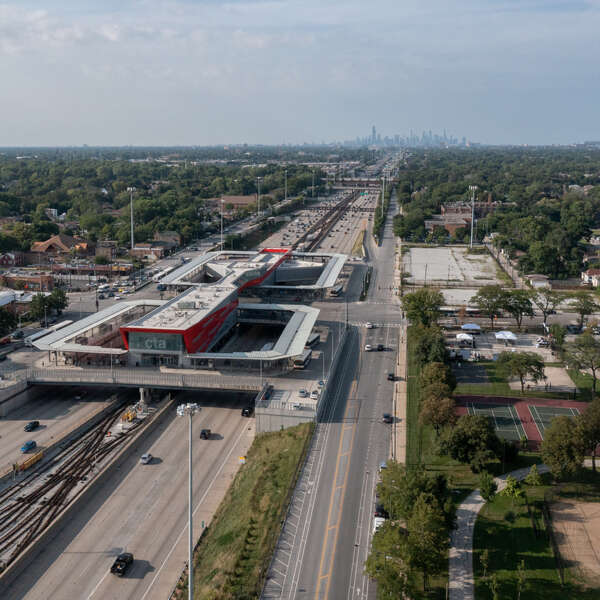 Three years into the Infrastructure Investment and Jobs Act, Chicago’s transit system is winning competitive grants and advancing critical projects
Three years into the Infrastructure Investment and Jobs Act, Chicago’s transit system is winning competitive grants and advancing critical projects
The Infrastructure Investment and Jobs Act (IIJA), passed in 2021, represented a historic level of federal investment for shoring up the nation’s infrastruct...
March 12, 2024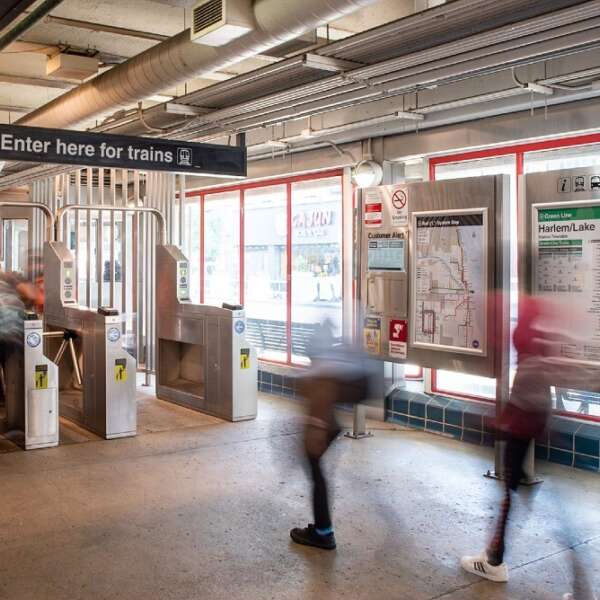 Why fully funding paratransit service and reduced fare programs is key to closing the transit budget gap
Why fully funding paratransit service and reduced fare programs is key to closing the transit budget gap
With transit facing a fiscal cliff in the coming years, fully funding critical programs like ADA paratransit service and free and reduced fare programs is on...
February 29, 2024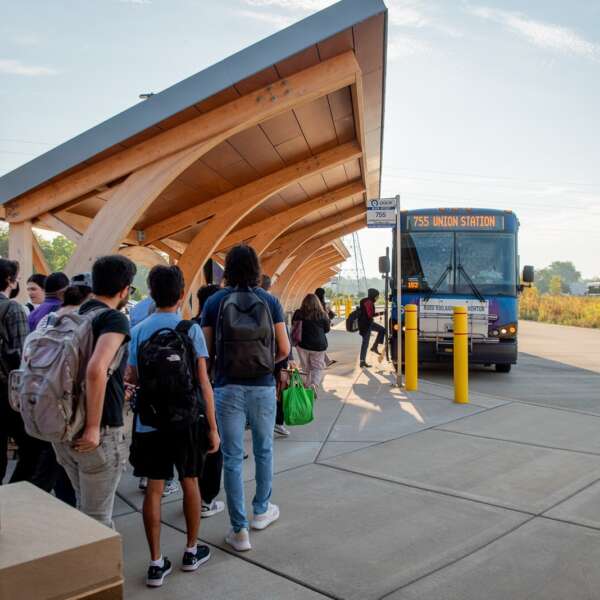 RTA releases semi-annual project management oversight report highlighting more than 100 capital projects
RTA releases semi-annual project management oversight report highlighting more than 100 capital projects
Under its Project Management Oversight (PMO) program, the RTA ensures that the Service Boards—CTA, Metra, and Pace—are spending capital funds and managing th...
January 3, 2024